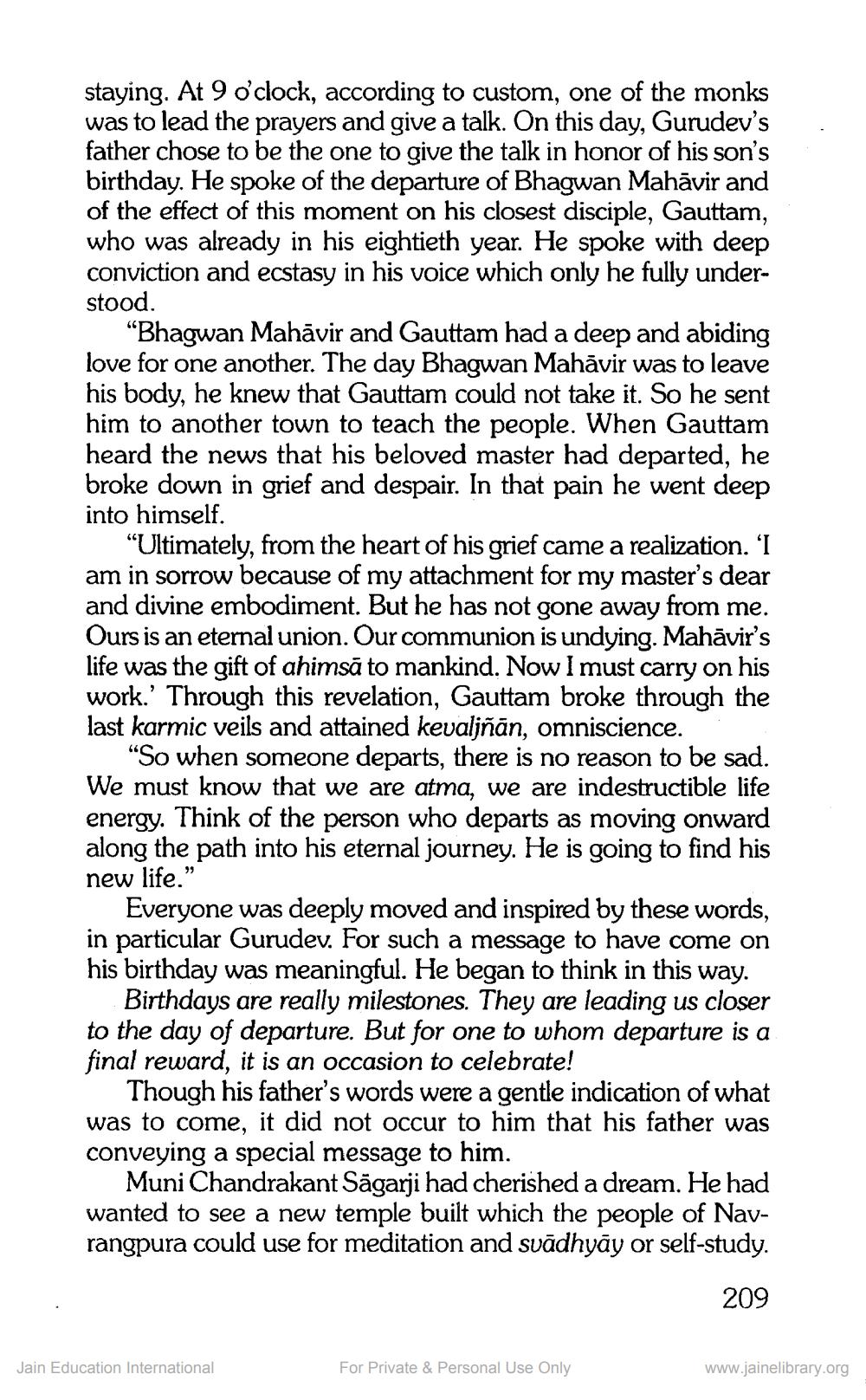________________
staying. At 9 o'clock, according to custom, one of the monks was to lead the prayers and give a talk. On this day, Gurudev's father chose to be the one to give the talk in honor of his son's birthday. He spoke of the departure of Bhagwan Mahavir and of the effect of this moment on his closest disciple, Gauttam, who was already in his eightieth year. He spoke with deep conviction and ecstasy in his voice which only he fully understood.
"Bhagwan Mahavir and Gauttam had a deep and abiding love for one another. The day Bhagwan Mahāvir was to leave his body, he knew that Gauttam could not take it. So he sent him to another town to teach the people. When Gauttam heard the news that his beloved master had departed, he broke down in grief and despair. In that pain he went deep into himself.
"Ultimately, from the heart of his grief came a realization. 'I am in sorrow because of my attachment for my master's dear and divine embodiment. But he has not gone away from me. Ours is an eternal union. Our communion is undying. Mahāvir's life was the gift of ahimsa to mankind. Now I must carry on his work.' Through this revelation, Gauttam broke through the last karmic veils and attained kevaljñān, omniscience.
"So when someone departs, there is no reason to be sad. We must know that we are atma, we are indestructible life energy. Think of the person who departs as moving onward along the path into his eternal journey. He is going to find his new life."
Everyone was deeply moved and inspired by these words, in particular Gurudev. For such a message to have come on his birthday was meaningful. He began to think in this way.
Birthdays are really milestones. They are leading us closer to the day of departure. But for one to whom departure is a final reward, it is an occasion to celebrate!
Though his father's words were a gentle indication of what was to come, it did not occur to him that his father was conveying a special message to him.
Muni Chandrakant Sāgarji had cherished a dream. He had wanted to see a new temple built which the people of Navrangpura could use for meditation and svādhyāy or self-study.
209
Jain Education International
For Private & Personal Use Only
www.jainelibrary.org




